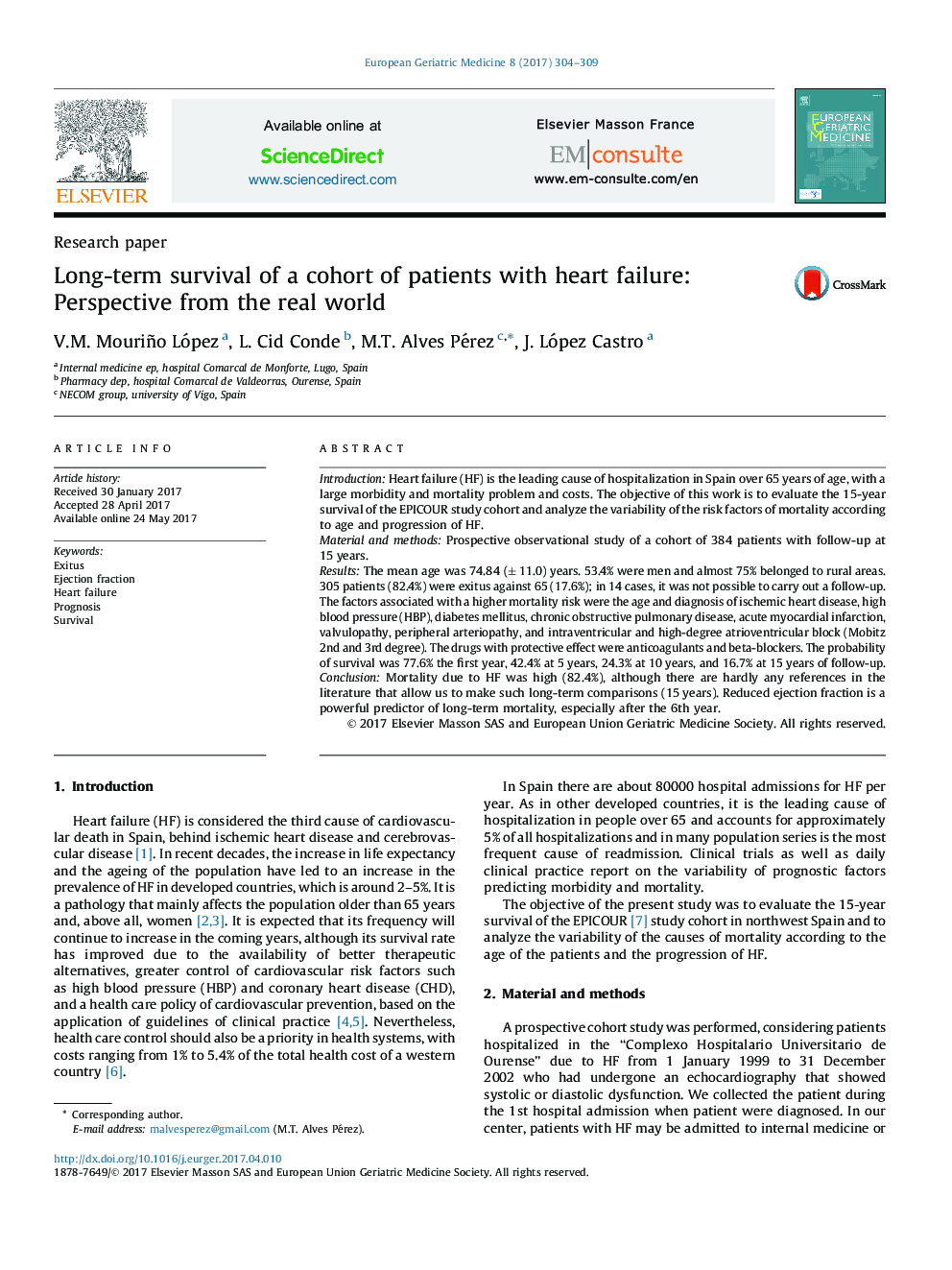| Article ID | Journal | Published Year | Pages | File Type |
|---|---|---|---|---|
| 5662626 | European Geriatric Medicine | 2017 | 6 Pages |
IntroductionHeart failure (HF) is the leading cause of hospitalization in Spain over 65 years of age, with a large morbidity and mortality problem and costs. The objective of this work is to evaluate the 15-year survival of the EPICOUR study cohort and analyze the variability of the risk factors of mortality according to age and progression of HF.Material and methodsProspective observational study of a cohort of 384 patients with follow-up at 15 years.ResultsThe mean age was 74.84 (± 11.0) years. 53.4% were men and almost 75% belonged to rural areas. 305 patients (82.4%) were exitus against 65 (17.6%); in 14 cases, it was not possible to carry out a follow-up. The factors associated with a higher mortality risk were the age and diagnosis of ischemic heart disease, high blood pressure (HBP), diabetes mellitus, chronic obstructive pulmonary disease, acute myocardial infarction, valvulopathy, peripheral arteriopathy, and intraventricular and high-degree atrioventricular block (Mobitz 2nd and 3rd degree). The drugs with protective effect were anticoagulants and beta-blockers. The probability of survival was 77.6% the first year, 42.4% at 5 years, 24.3% at 10 years, and 16.7% at 15 years of follow-up.ConclusionMortality due to HF was high (82.4%), although there are hardly any references in the literature that allow us to make such long-term comparisons (15 years). Reduced ejection fraction is a powerful predictor of long-term mortality, especially after the 6th year.
